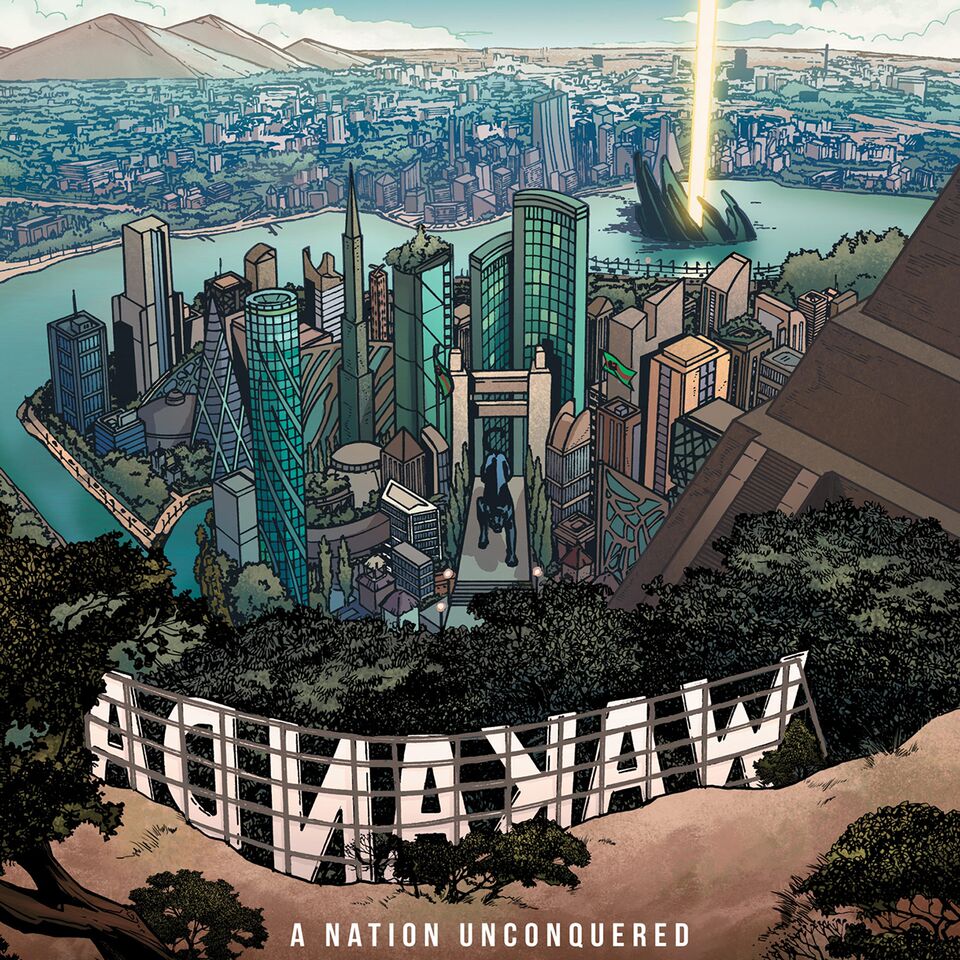
The setting of ‘Black Panther’ is a weird, fantastical place
By Greg Waldock, Staff Writer
As the MCU becomes more successful, Marvel can focus on bringing in some of their more unique and innovative ideas from their long history. The fictional nation of Wakanda is the latest of these ideas to hit the big screen, with its introduction in Captain America: Civil War in 2016 and a full Black Panther movie in 2018, plus a recently announced Lego movie based around T’challa and his country. But Wakanda existed long before any Marvel movie, and its hyper-isolationist, monarchical, Afro-futurist society is unlike anything else in comics.
The very first appearance of Wakanda was in a Fantastic Four comic all the way back in 1966, and was a joint creation by comic legends Jack Kirby and Stan Lee. King T’challa, in his alter-ego as the Black Panther, confronts the Fantastic Four to try and join their cause. From then on, T’challa appears around the Marvel universe to lend aid, seek help, strengthen Wakanda’s position in an increasingly globalized world, and occasionally meddle in the many apocalypses Earth endures since the 1960s.
The in-universe history of Wakanda is pure, glorious science fiction. Ten thousand years ago, a meteorite crashed into northeastern Africa and left behind vast deposits of “vibranium,” a fictional indestructible material that makes up everything from Captain America’s iconic shield to Black Panther’s own armour. Wakanda was founded on this deposit and the identity of the Black Panther was created to protect it and the people that rely on it. The title has been passed down the royal line for millennia until it reaches our own King T’challa, who is exiled from the country, returns victorious, abdicates the throne, reclaims it, dies and is resurrected, is hated and then revered by his people… the list goes on. That’s comics. No superhero has a normal life.
Wakanda is the single most advanced country on Earth in the Marvel comics and cinematic universe. Their use of vibranium allowed their technology to progress decades or even centuries ahead the rest of the world and allowed them to resist European colonization and neocolonialism. It’s isolationist to a fault, staunchly refusing to participate in the United Nations or get involved in international conflicts, and the monarchy wields almost unchecked power. Thus, throughout its long history in the comics, Wakanda is used as a vehicle to explore colonialism, the morality of monarchy, eastern African culture, and many other high-minded philosophical concepts. Its portrayal varies from writer to writer, but across the decades Wakanda has always been a center of political debate and upturning European expectations of Africa.
As the release of Black Panther approaches and we get closer to our first big-budget version of Wakanda, we have to wonder how much this fictional history and philosophy will appear, and what comics the movie will derive the most inspiration from. Iron Man, Captain America, The Incredible Hulk, and Thor all had extremely predictable storylines based around iconic characters. T’challa has never had that benefit. His origin isn’t as famous as Steve Rogers or Spider-Man or Bruce Banner, and Wakanda isn’t as comfortably familiar as New York. It’s an exciting opportunity to bring something truly new and innovative to the Marvel Cinematic Universe.

